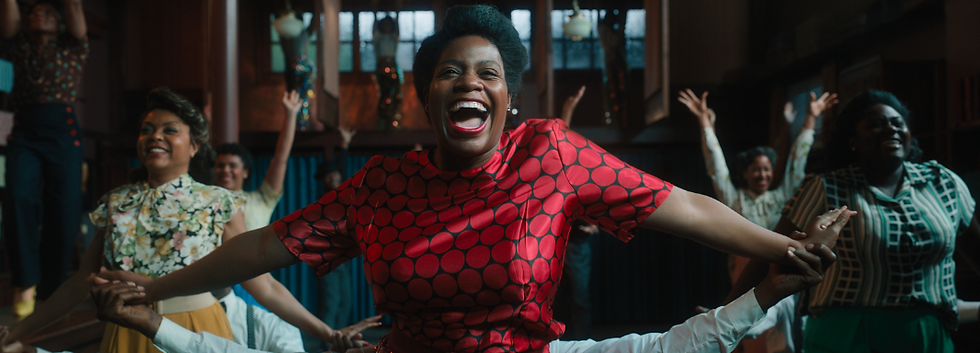
'The Color Purple' Review
December 19, 2023
By:
Hunter Friesen
The Color Purple is not a musical, it’s a MUSICAL. Unlike other movie musicals slated to release soon (looking at you Wonka and Mean Girls), this one is unabashed in its traits and always threatening to leap off the screen and break out into song in the aisles. Director Blitz Bazawule opens the film with the camera swirling down from the sky, eventually careening its way to two sisters sitting on a tree. The girls make their way into town where they’re greeted by the townsfolk singing about how the Lord works in mysterious ways. It’s an uplifting, high-energy tune filled with athletic choreography and a restless spirit, a tone-setter for the rest of the set pieces.
These joyous moments do not replace the darkness that is within this story. Even at a young age Celie (Phylicia Pearl Mpasi) and Netti (Halle Bailey) face incredible hardships. Celie is pregnant with her second child from her father Alfonso, the first having been “given to God” immediately after it was born. The second shares the same fate, with the cruelty of the father only growing exponentially. A wolf in sheep’s clothing comes in the form of “Mister” (Colman Domingo), who reluctantly buys Celie to be his bride after being told that Nettie is not for sale. Years go by in the blink of an eye as a grown-up Celie (Fantasia Barrino, reprising her role from Broadway) must live a secluded life raising Mister’s unruly kids from his previous marriage and is forbidden from contacting Nettie.
Her first smile does not come until almost an hour into the film. By then it’s a foreign concept, something she forgot was able to exist in her life. Barrino is quite remarkable as Celie, never feeling like an imitation of Whoopi Goldberg from the 1985 Steven Spielberg film. She has the incredibly difficult job of being beaten down to utter silence while also displaying perseverance through loud musical numbers. Along with her in many of those set pieces is Danielle Brooks (also returning from Broadway) as Sofia and Taraji P. Henson as Shug Avery. Each of these women delivers a movie star performance on the grandest stage, with Brooks being the notable standout with her rendition of “Hell No!”
But while the cast is all game for the balancing act of light and dark, Bazawule and screenwriter Marcus Gardley are not. A distinct tonal imbalance hangs over everything, making it all feel like it's stuck in neutral. For a movie that belts its emotions for 140 minutes on a giant screen, you ought to feel something, anything. I don’t want to cop out and say this movie just doesn’t have “it,” but there’s no better way to describe it. The words “occasionally monotonous” are not what I predicted to use to describe this beforehand. Neither would I think Gardley would sand down Alice Walker’s novel even further than the 1985 film did, with Celie and Shug’s original passion for each other being reduced to little more than a slightly sexualized friendship.

Bazawule does display an admirable amount of command over the entire production. His experience with Beyoncé's Black Is King is apparent, with the music and visuals popping off the screen. It’s an interesting middle ground between a film adaptation and a recorded stage production, sometimes feeling like several visual albums awkwardly stitched together to make a cohesive narrative. Dan Laustsen’s cinematography features heavenly lights beaming through every window and Paul D. Austerberry’s sets are beautiful, yet artificial.
The Color Purple has a giant heart that it loudly shares with the world, yet there always seems to be a gap in the translation. A puzzling transition here, a missed emotional beat there; it all adds up to something being a little less than the sum of its parts. Luckily, this epic journey ends on a superior number, both lyrically and visually. I walked away with a half-smile, which definitely counts for something.




